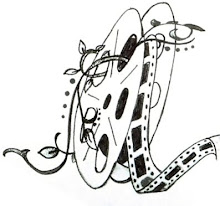The Knights Templar was an order set up after the first crusade in 1099, they devoted their lives to protecting pilgrims in the holy land of Jerusalem. It is argued that the Templar order was the first military order founded by the catholic church.
In 1168 the Temple Church in London was built as a headquarters in Britain for the vastly growing order. The temple church is located between Fleet Street and the river Thames. The land between the temple and the river served as a training ground for the knights. The Knights ran an early form of banking from the Temples across the holy land as protection for the pilgrims. Thieves are less likely to target someone that is not caring valuables.
The round Naive of the church was designed and modelled on the Church of the Holy Sepulchre in Jerusalem, believed to be the most holy of Christian churches built upon the death and resurrection spot of Jesus Christ. Knights buried in the round were the most powerful of their generation, a burial here was greatly desired as it was a representation of a burial in Holy lands of Jerusalem.
Looking closely at the columns supporting the Naive, we can see that they lean outwards at marked angles. The Naive stands freely, with Gothic arches which rise to the drum. This was an architectural marvel at the time of creation. The Templar’s where the first to engineer such a design.
Within the Naive there are nine life sized effigies made from marble, these effigies are of members of the Templar order with the oldest being of Sir Rodger de Ros. The most famous of them lies Sir William Marshall who served as negotiator of meetings between King John and the Barons Sir William later became regent during the reign of King Henry III.
The rectangular chancel was added in 1240 by Norman King, Henry III. The extension was built when the Templar’s expect Henry III and his wife Eleanor or Provence to be buried at the Church. King Henry III was instead buried at Westminster Abby. It was in fact his Son Henry that was buried at the Temple Church. Many Kings of England held a close relationship to the Templar order, King Richard Believed himself to be a member of the Templar order, often disguising himself as one on journeys from England to the East.
The Templar order became very wealthy; many believe it is this wealth that led to their eventual downfall. King Philip IV of France take upon a chance to rid the world of the Templar order when accusations where raised about members of the Templar order, it was generally agreed that the charges were false yet King Philip took upon the rumours for his own uses as a way out of his debt to the Templar order for their help in a war against England. In 1324 King Edward II of England reluctantly seized and handed over the assets of the Templar order, including the Temple Church, to the Knights Hospitaller, who rented the church to law students. King Edward stood in good accord with the Templar order, giving them a role in public affairs, financials issues and diplomacy, before the accusations arose. Edward at first refused to believe the accusations made by the French King but later followed his lead after the intercession of Pope Clement V.
The Temple Church survived long after the fall of its creators. In 1666 London saw the worst disaster of the possible, the Great Fire which tore apart the city bring it to the ground. The Temple Church as one of few building to be spared the devastation, although no damage was done Christopher Wren carried out renovations to the interior of the Church which included the installation of its first organ. More renovations and restorations came after the Temple Church received heavy bomb damage in the Second World War, in which the spire was destroyed and columns damaged. The columns where replaced was exact replicas and the spire that once stood over the Naive, pointing towards God, was redesigned to house a drum.
(approx 4 1/2 - 5 mins for voice over)

No comments:
Post a Comment